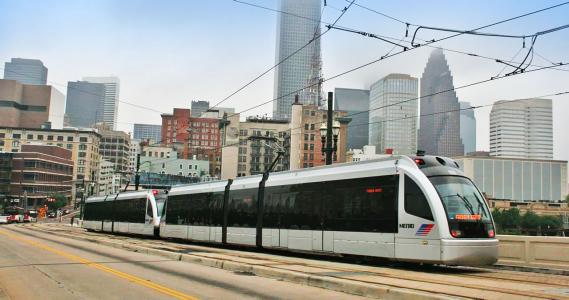Nigeria needs more trans-national lines
Anthony Areh
The African Railway Consortium (AFRECO) has affirmed that Nigeria needed more transnational railway lines to sustain and expand its economic influence within Africa.
Mr Olawale Rasheed, Chief Executive Officer of AFRECO, who made this known in a statement in Abuja, lauded the commencement of the Kano-Maradi railway project.
President Muhammadu Buhari had on Tuesday, Feb.9, held the ground breaking of the rail project which begins from Kano in Nigeria to Maradi in Niger Republic.
African Railway Consortium works locally and internationally on railway development.
Rasheed, therefore, called for the initiation of Maiduguri-Ndjamena railway line, the inauguration of ECOWAS trans-west African Railway from Lagos to Abidjan and a line from Cross River to Cameroon.
He said the transnational project would expand Nigeria’s economic reach and influence as the biggest economy in Africa, within the context of African Continental Free Trade Area.
According to Rasheed, the project will open up densely populated areas of both Nigeria and Niger republic to an expanded economic relationship.
He said it would serve the interest of Nigerian exporters and drawing Niger closer into Nigeria’s orbit of influence.
He noted that Nigeria supplies almost two-thirds of Niger’s cereals needs, hence the trade will get more boosted and formalised.
He noted that expanded trading would alleviate poverty and create new opportunities while corridor development along the route would engender rural development and economy and move many citizens into the railway economy.
The AFRECO boss added that the project would speed up the revival of Kano as the industrial hub of the North.
“Just as the new Ibadan – Lagos Railway is promising to expand and integrate two major industrial centres of South-West, the Kano-Maradi line will provide ready markets for budding exporters in Kano and other areas.
“It will particularly energise the Kano Export Processing Zone which has several companies producing many industrial products.
“For Niger republic, it is a dream that comes through due to historic ethnic and religious affiliation between the two countries.
“Just like the ethnic bond between Nigeria and Benin Republic, the rail project promises to change internal economic dynamics of Niger republic.
“Nigerian imports may be redirected to Nigerian ports especially with the strong presence of Bollore logistics in Lagos,” he said.
Rasheed, however, called on the Federal Government to persist in its expansive railway development agenda.
He further urged the government to act boldly by rolling out a private sector-oriented fast train between North and South, to hand over interstate link rail lines to the private sector.
“Let design a rail agenda between Cross River and Cameroon, between Maiduguri and Ndjamena and between Oyo and Benin republic.
“Let spearhead the making of a trans-west African Railway between Lagos and Abidjan the Private Sector framework can realise all these,” Rasheed said.
The African Railway Consortium (AFRECO) has affirmed that Nigeria needed more transnational railway lines to sustain and expand its economic influence within Africa.
Mr Olawale Rasheed, Chief Executive Officer of AFRECO, who made this known in a statement in Abuja, lauded the commencement of the Kano-Maradi railway project.
President Muhammadu Buhari had on Tuesday, Feb.9, held the ground breaking of the rail project which begins from Kano in Nigeria to Maradi in Niger Republic.
African Railway Consortium works locally and internationally on railway development.
Rasheed, therefore, called for the initiation of Maiduguri-Ndjamena railway line, the inauguration of ECOWAS trans-west African Railway from Lagos to Abidjan and a line from Cross River to Cameroon.
He said the transnational project would expand Nigeria’s economic reach and influence as the biggest economy in Africa, within the context of African Continental Free Trade Area.
According to Rasheed, the project will open up densely populated areas of both Nigeria and Niger republic to an expanded economic relationship.
He said it would serve the interest of Nigerian exporters and drawing Niger closer into Nigeria’s orbit of influence.
He noted that Nigeria supplies almost two-thirds of Niger’s cereals needs, hence the trade will get more boosted and formalised.
He noted that expanded trading would alleviate poverty and create new opportunities while corridor development along the route would engender rural development and economy and move many citizens into the railway economy.
The AFRECO boss added that the project would speed up the revival of Kano as the industrial hub of the North.
“Just as the new Ibadan – Lagos Railway is promising to expand and integrate two major industrial centres of South-West, the Kano-Maradi line will provide ready markets for budding exporters in Kano and other areas.
“It will particularly energise the Kano Export Processing Zone which has several companies producing many industrial products.
“For Niger republic, it is a dream that comes through due to historic ethnic and religious affiliation between the two countries.
“Just like the ethnic bond between Nigeria and Benin Republic, the rail project promises to change internal economic dynamics of Niger republic.
“Nigerian imports may be redirected to Nigerian ports especially with the strong presence of Bollore logistics in Lagos,” he said.
Rasheed, however, called on the Federal Government to persist in its expansive railway development agenda.
He further urged the government to act boldly by rolling out a private sector-oriented fast train between North and South, to hand over interstate link rail lines to the private sector.
“Let design a rail agenda between Cross River and Cameroon, between Maiduguri and Ndjamena and between Oyo and Benin republic.
“Let spearhead the making of a trans-west African Railway between Lagos and Abidjan the Private Sector framework can realise all these,” Rasheed said.




